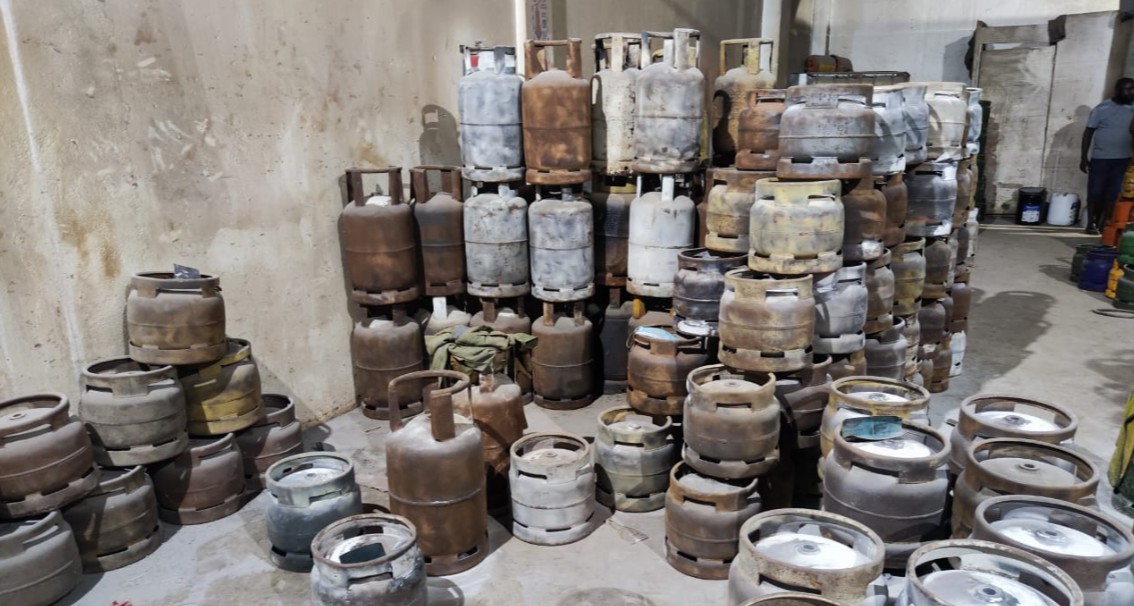Kenya bans 77 pesticides, restricts 202 in major agrochemical crackdown

Among those banned are some of the world’s most controversial and toxic chemicals, such as 2,4,5-T, a herbicide long associated with severe environmental and health hazards.
The government has banned 77 pest control products and restricted 202 others in a major crackdown targeting unsafe agrochemicals.
In a statement on Monday, Agriculture Cabinet Secretary Mutahi Kagwe said another 151 pest control products are still being scrutinised.
More To Read
- Government releases 200,000 bags of subsidised maize to millers to stabilise flour prices
- Government announces new appointments across key ministries
- Kagwe calls for overhaul of agriculture funding, criticises three per cent budget allocation
- Farmers, activists demand full disclosure on pesticides ban amid health and legal fears
- CS Kagwe calls for removal of value-added tax on key farm inputs to boost sector competitiveness
- Government leases four state-owned sugar mills to private firms for 30 years
Among those banned are some of the world’s most controversial and toxic chemicals, such as 2,4,5-T, a herbicide long associated with severe environmental and health hazards. Others include the insecticides Chlordane, Chlordimeform and Endrin, all of which have been globally criticised for their persistence in the environment and risks to human health.
Also outlawed is DDT (Dichlorodiphenyl Trichloroethane), previously used in agriculture but now widely restricted due to its long-term environmental contamination. Highly toxic soil fumigants such as Dibromochloropropane and Ethylene Dibromide have also been prohibited, along with Heptachlor and Toxaphene, which are known to pose significant risks to both human and animal life.
The ban extends to the five isomers of Hexachlorocyclohexane, a fungicide group that has been linked to chronic health conditions.
Kagwe said the move follows a comprehensive review of pesticide active ingredients registered in Kenya, conducted by the Pest Control Products Board (PCPB). The board reviewed 430 end-use products using scientific data from applicants and referencing global regulatory decisions.
“Following scientific assessments and stakeholder consultations, we have identified certain active ingredients and associated end-use products that pose unacceptable risks to human health, crops, livestock, and the environment,” the CS said.
He noted that 77 end-use products have now been withdrawn from the Kenyan market, while the use of another 202 has been restricted to specific crops and conditions. The remaining 151 products under review will remain banned from use or importation until the conclusion of the review, which is expected by December 2025.
Among the restricted molecules is 2,4-D Amine, now prohibited in coffee farming, Abamectin, disallowed in open fields and Chlorpyrifos, restricted for use only as a termiticide. Others like Propineb and Iprodione are now banned for use on edible crops.
Several molecules have also had their importation stopped pending review, including Oxydemeton-methyl. The use of Mancozeb and Permethrin is under evaluation.
To further strengthen pesticide regulation, Kagwe said the Ministry has finalised the Draft Pest Control Products Bill, which has already received Cabinet approval and is set to be tabled in Parliament.
The Ministry has also introduced tighter regulatory conditions to ensure only safe pest control products are allowed into the Kenyan market. Kagwe said any pesticide being considered for registration in Kenya must first be registered in its country of origin.
Additionally, products that have been banned under international multilateral environmental agreements will no longer be eligible for approval locally.
“These measures are aimed at ensuring that only globally accepted and scientifically proven pest control products are used in Kenya,” Kagwe said, noting that the ministry is committed to aligning local agricultural practices with international safety standards.
“This action is part of our continuous efforts to align Kenya’s agricultural practices with international best standards, ensure food safety for all Kenyans, and promote sustainable agriculture.”
Kagwe urged all stakeholders, including farmers, distributors and agrochemical dealers, to adhere strictly to the new regulations and to adopt safer, environmentally friendly pest control alternatives.
“The Ministry is committed to supporting farmers through education, extension services, and the promotion of integrated pest management practices,” he said.
Top Stories Today













































